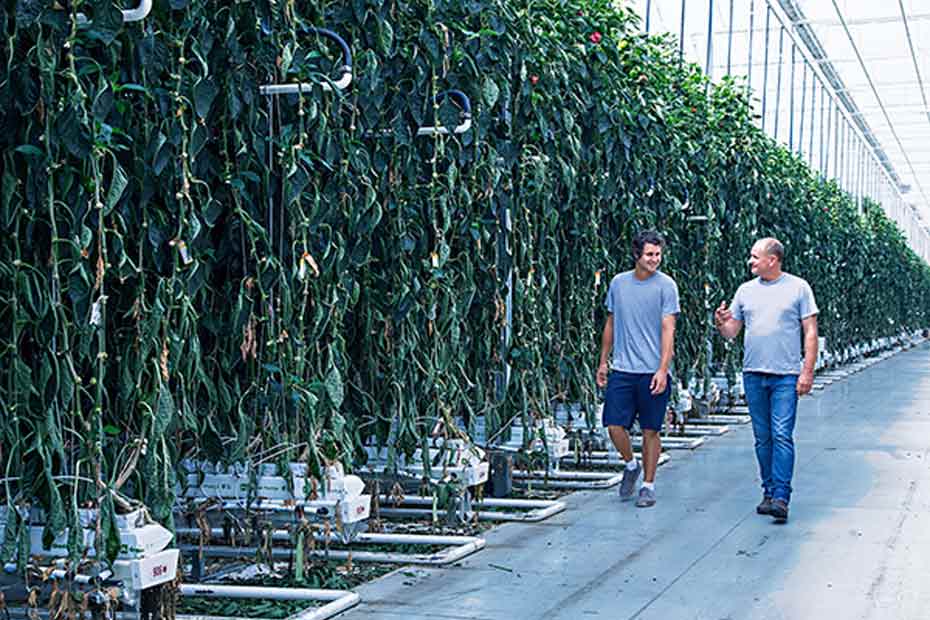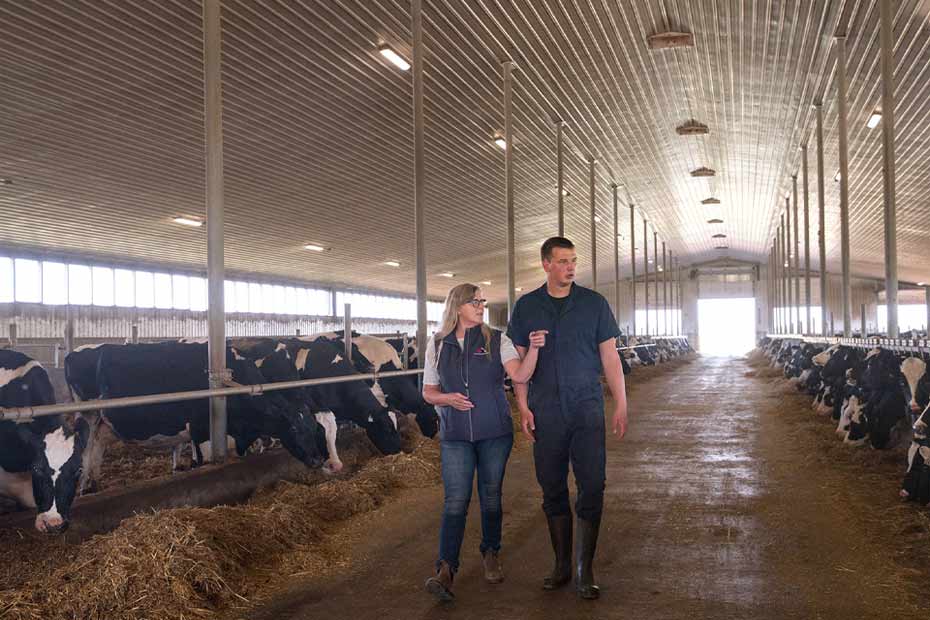Published January 20, 2022 • 5 Min Read
Transitioning a family farm from one generation of ownership to another might seem straightforward. Agree on a price, agree on a shift in responsibility, sign the papers and away you go.
Of course, the process is almost always more complicated than that. It involves the transfer of a ‘family’ business in which the current generation devoted a lifetime; it is the place where the family was raised; where everyone contributed as children; and so it carries sentimental value stirring a lot of emotions. Beyond the outgoing farming generation and the incoming, there can be a host of other family members in the mix.
When the situation is complex, an outside perspective is most helpful. That is when Canadian farm families tend to call the experts. Yvonne Thyssen-Post, Professional Agrologist and a farm business advisor in Truro, Nova Scotia, offers four ways to help a multi-stakeholder farm transition succeed.
1. Identify all the stakeholders
There are likely to be more views to consider than just the outgoing and incoming farm operators and spouses. As a first step, Thyssen-Post recommends identifying everyone who’s a stakeholder or sees themselves as one.
If the outgoing generation has non-farming children, they and their spouses should be consulted. They could consider themselves in line for an equity stake or some kind of payment. There might be grandparents in the picture as well, and other branches of the family with an interest in the farm’s future.
2. Ask everyone for their views
When a farm family approaches Thyssen-Post for help with generational transition, she insists on a preliminary step.
“I strongly suggest that I talk to everybody involved at the beginning of the process,” she says. “I want to talk to the parents and all of the children, whether they are farming or not, and their significant others – everyone who might have a stake or who is a direct family member.”
She conducts these interviews individually, not with couples or groups. As Thyssen-Post explains, this helps ensure that everyone is heard and long-standing assumptions are challenged. Even when the farm family feels the successor is clearly identified, she wants to start with this step. This process takes time and adds cost, but Thyssen-Post views it as essential.
“When we skip that part, 80% of the time it comes back to haunt you. Consulting with all stakeholders at the very beginning, confirms they are part of the family and their opinion is valued.”
3. Adjust plans if needed
With the interviews done, Thyssen-Post will then sit down with her clients. Usually, that’s the retiring generation.
“Sometimes, the situation is more or less what the parents thought going in,” she says. “Other times, the parents might think they’ve identified the successor, but there might be others who’d like to be considered.”
If there’s one clear successor plus their spouse, and no non-farming kids in the picture, the succession process can be straightforward. If there’s more than one successor, and/or multiple non-farming stakeholders, getting to an agreement will take more time, effort and compromise. Ultimately, the decisions rest with the farm’s current owners, but maintaining family harmony is also desired.
“The large capital investment required for farms, means almost always, there will be some gifting from the older generation to the successor or successors,” says Thyssen-Post. “Then we also discuss how to treat the non-farming children?”
4. Keep the farm business healthy
Some farm families are liquid enough to do it all: satisfy non-farming children, fund a comfortable retirement for the parents and set the new farming generation on their way. In Thyssen-Post’s experience, few are able to do this and keeping everyone happy at the cost of the farm’s future is likely to cause regret later.
“Many farm businesses today are carrying substantial debt, and yet the retiring generation needs a payout from the business to retire” says Thyssen-Post. “In these cases, it is very challenging to transfer money to parents and still keep the farm viable for the next generation.”
In her opinion, transition works better if the farm’s debt is moderate to begin with, if parents build up a portion of their retirement savings outside the farm, and the new farming generation brings some equity to the table. The next generation has to have the financial resources to farm sustainably. They will encounter challenges with climate change, product pricing, production issues, etc., the same as their parents. It’s not simply a matter of paying what everyone wants, or thinks they deserve and expecting the new generation to survive on what’s left.
“You also have to make the business work,” Thyssen-Post says.
A stalled transition prevents the business from moving forward and capturing opportunities. On the other hand, a hastily struck agreement that fails to consider everyone’s needs can cause problems down the road.
“I’ve seen many outcomes to this, including lawsuits and court cases,” says Thyssen-Post. “I’ve seen it destroy families and farms, but I have also seen successful transitions where everyone works together to achieve a common goal.
“Most conflicts are caused by poor communication or lack of communication within the family. The more people involved, the greater potential for conflict. What makes farming as a business so difficult? It’s the overlapping of family with business. ”
Take your agri-business to the next level. Check out the new University of Guelph Foundations in Agricultural Management course, created in collaboration with RBC & Farm Credit Canada. Invest in your Business. Invest in Yourself.
This article is intended as general information only and is not to be relied upon as constituting legal, financial or other professional advice. A professional advisor should be consulted regarding your specific situation. Information presented is believed to be factual and up-to-date but we do not guarantee its accuracy and it should not be regarded as a complete analysis of the subjects discussed. All expressions of opinion reflect the judgment of the authors as of the date of publication and are subject to change. No endorsement of any third parties or their advice, opinions, information, products or services is expressly given or implied by Royal Bank of Canada or any of its affiliates.
Share This Article






